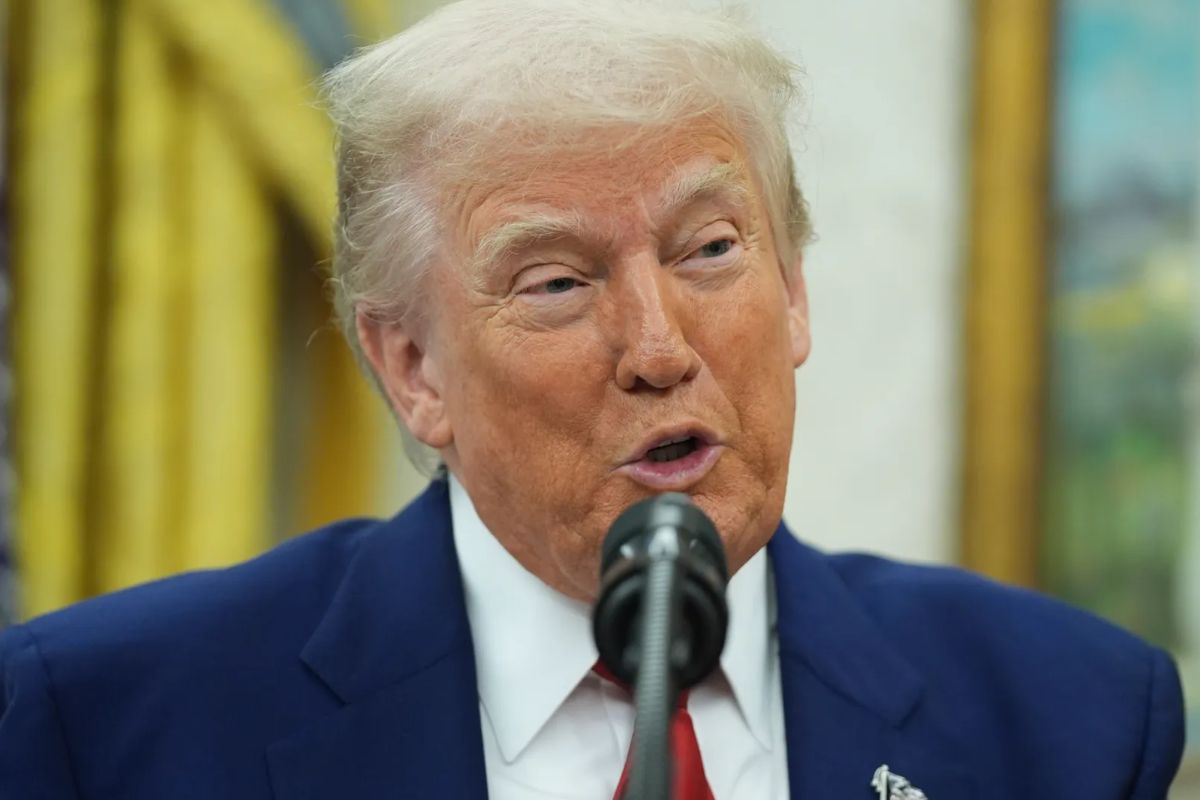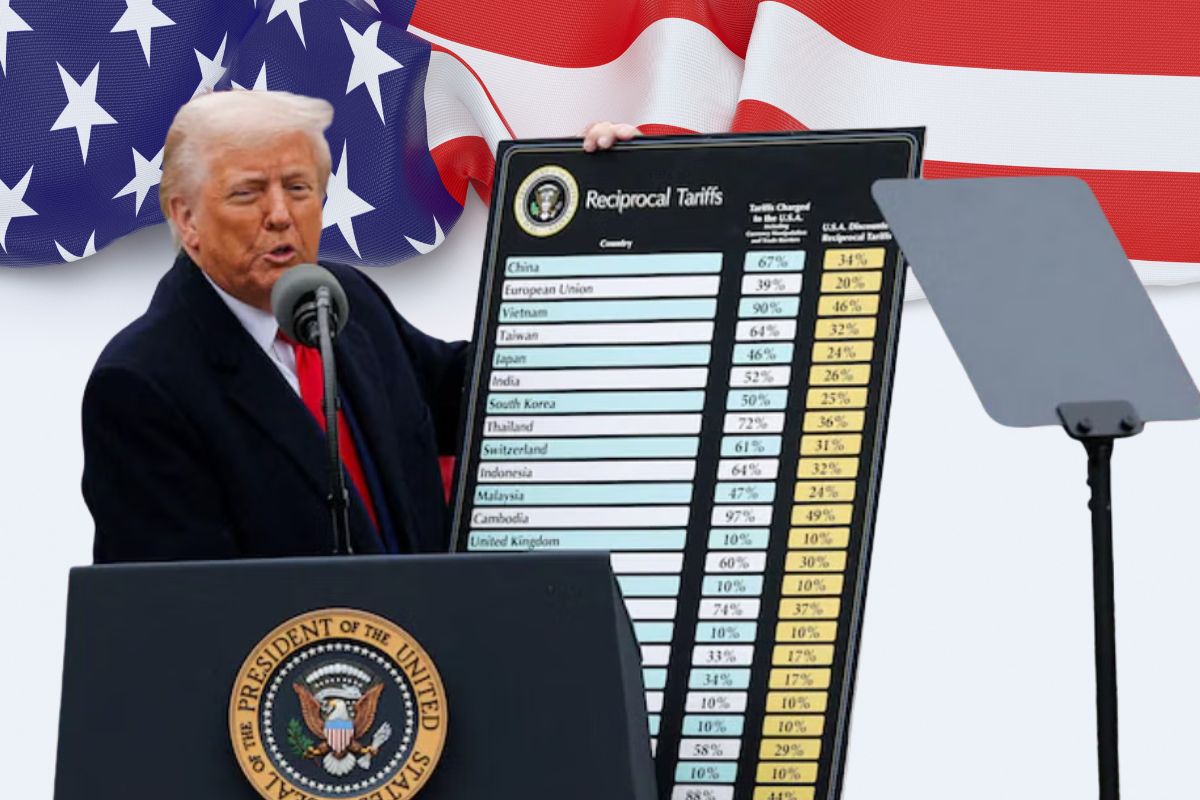You know how, every once in a while, you think you’re following the rules just fine, when suddenly something reveals that for all you knew, you had your chess pieces on a checkers board? And that’s more or less what happened to President Trump’s tariff strategy this week. As someone who has followed trade policy since my dad’s small manufacturing company was caught in the first round of trade wars, I can tell you that this latest tariff news changes everything.
On Friday, a federal appeals court more or less told Trump, “Hold your horses there, Mr. President.” They invalidated many of his sweeping tariffs. Argued he had exceeded his authority by using emergency powers to impose taxes on imports. It’s like when your boss permits you to handle “urgent matters,” and you end up reorganizing the entire company structure. Sometimes you have to stay in your lane.
What Actually Happened
The Federal Circuit Court ruled 7-4 that Trump went too far. He invoked the International Emergency Economic Powers Act (IEEPA) to institute his history-making tariffs. There was something pretty basic but important that the judges noted. The authority of the president to levy taxes is one that the Constitution gives to Congress. You know, one of those “separation of powers” things they taught us in civics class.

Here’s the kicker. When Congress passed the IEEPA, it did not even include words like “tariff”, “duty”, or “tax”. That’s a pretty big red flag. It’s as if you were hired to run social media, but you insisted on having authority over the entire marketing budget simply because it wasn’t specifically prohibited.
Trump wasn’t having it, though. He wrote on social media late Friday: “All tariffs remain!” And he’s technically right for the moment. The court granted his administration until October to appeal to the Supreme Court before anything changes.
Also Read – Why I Spent $400 on Peace and Quiet (And Don’t Regret It)
The Real-World Impact
Now here’s where this tariff news becomes interesting for regular folks. These are not just numbers on a spreadsheet. They’re impacting real businesses and families. The suit that started this whole thing was filed by small businesses, including a wine seller and other companies that were getting walloped by the sudden jump in the price of imports.
I recall chatting with my neighbor, who owns an auto parts store. When the Trump tariffs struck earlier this year, his costs suddenly went through the roof. He faced a decision: eat the added cost or pass it along to customers already shouldering high prices. It’s a tough spot that millions of small business owners find themselves in.
My dad had to experience something like that long ago. He had developed relationships with suppliers over decades. Then boom. Overnight, everything changed. Had to scramble to find new sources or work out how to absorb the costs without going under.
Labor Day was the date Treasury Secretary Scott Bessent had said that tariff negotiations would be “wrapped up”. I mean, Labor Day is bearing down on us, and now foreign leaders are presumably scratching their heads, wondering whether the deals they’re negotiating will be legal.

The Political Chess Game
And what gives this tariff news an extra bit of bite is the timing. Trump has made these tariffs a cornerstone of his economic strategy. He’s employed them not simply as trade instruments but as diplomatic cudgels. Threatening allies and adversaries alike. Now, with the legal foundation potentially crumbling, his administration is scrambling.
Commerce Secretary Howard Lutnick warned that blocking the tariffs would cause “irreparable harm” and risk “unwinding” trade deals already announced with the EU, UK, and Japan. That’s bureaucrat-speak for “this could blow up in our faces.”
And the attorney general, Pam Bondi, announced that they were going to appeal to the Supreme Court. I look forward to how the justices deal with this one. And especially because it raises fundamental questions about presidential power versus congressional authority.
The whole thing reminds me of a poker game where someone keeps raising the stakes, but then the dealer tells them they’re using the wrong chips.
What’s Next
The dissenting judges in Friday’s ruling argued that Trump does have some authority to impose tariffs under emergency powers. Judge Richard Taranto wrote that the IEEPA’s language “authorizes tariffs to regulate importation.” So this isn’t exactly a slam dunk. There’s room for interpretation.
But here’s my take, having watched trade policy ping-pong between different approaches for years. This ruling highlights the messy reality of governing in a complex, interconnected world. You can’t just wave a presidential pen and restructure global trade relationships overnight, no matter how much you want to.
For businesses caught in the middle, this creates even more uncertainty. Do you plan for the tariffs staying? Do you bet on them being removed? It’s like trying to plan a picnic when the weather forecast keeps changing every hour.
Also Read – These 36 Questions That Lead to Love Actually Work (I Tried Them)
The Bottom Line
The tariff news demonstrates that even presidents have limits to their power. Whether you are a fan of Trump’s approach to trade or think it is insane, the court’s ruling underscores the fact that our system of checks and balances continues to matter.
The Supreme Court will ultimately decide whether Trump can keep using emergency powers this way.
Until then, businesses, consumers, and trading partners worldwide are left in limbo. Trying to navigate a trade landscape that could shift dramatically based on a few judges’ opinions.
One thing’s for sure. This tariff saga is far from over. As my grandfather used to say, “The only constant in business is change.” And boy, has that been true for American trade policy lately. Buckle up, folks. This ride isn’t over yet.


